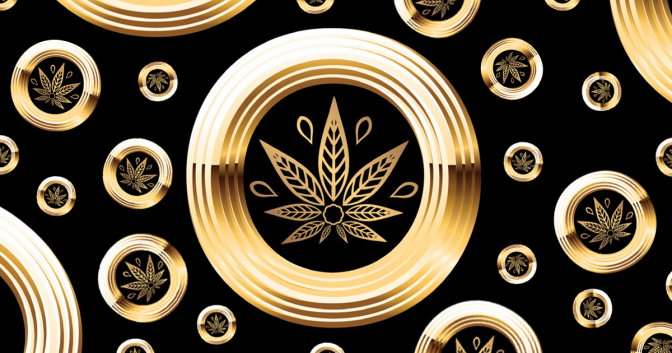Freedom Leaf Travel: Medellín, Colombia

Perhaps more than any other country, Colombia is globally associated with drugs. Baby boomers have fond memories of the fabled Santa Marta Gold in the early to mid-1970s, and later, Punta Roja and dark brown Gungi strains.
By the end of the Me Decade, Colombian bud had largely supplanted Mexican mota in the marketplace, especially on the East Coast and in the Mid-west. Some cultural observers even credit the abundant Colombian Red of the late ’70s with helping to fuel stoner comedians from Cheech and Chong to George Carlin—but the Reagan and Bush eras would soon put an end to that.

Once the home of Pablo Escobar’s cocaine cartel, Medellin recently hosted a cannabis expo.
Until the early ’80s, the preferred method for Colombian cannabis smugglers was to pack large freighters with tons of high-grade, sticky buds that were sailed to points 50 or so miles off the coast of Florida. Smaller shrimp and tuna boats would meet the freighter “motherships” and offload the herb, before running it through a maze of channels and remote beaches from Florida to Louisiana.
This was prior to aerial observation. In 1982, the South Florida Drug Task Force was formed by the Reagan administration. Bringing the full weight of federal resources to the game, the U.S. began deploying AWACS radar planes and high-speed Coast Guard cutters near Florida to intercept the motherships, which were easy targets as they sat being offloaded.
At the same time, Colombian smugglers started requiring that, for every load of herb bought, the buyer also had to take some cocaine. Within a few short years, coke began to flood into the States. Crack soon followed, and the U.S. experienced its worst drug epidemic since the ’60s heroin influx. The tremendous violence associated with the cocaine business caused massive dam-age to both the people of Colombia and their international reputation. As a result, Colombians have a very jaundiced view of all drugs.
South America has been quietly leading the world’s drug-reform movement. In 2012, Uruguay was the first country to completely legalize cannabis, and Chile and Argentina have both decriminalized not just cannabis, but also small amounts of cocaine and Ecstasy. Colombia is now tentatively following their leads. This beautiful country of incredibly friendly people has legalized extractions of cannabis, and there are now stores from Bogota to Medellín that sell hash oil or BHO wax. Flowers, ironically, are not yet legal to sell.
During Thanksgiving week, the first-ever Colombian cannabis trade show, Expo Mede Weed 2016, took place in Medellín. Held in the beautiful Jardín Botánico de Medellín, the event featured three days of seminars and numerous booths stocked with various products. The presenters included both North and South American cannabis activists, including U.S. lawyer Don Wirtshafter, who discussed the history of dispensaries in the U.S. and how that applies to the current landscape in Colombia.
“I was so excited to be asked to come down and help begin the education process in Colombia,” Wirtshafter told Freedom Leaf. When asked how long he thinks it’s going to take for the canna-bis industry to develop there, Wirtshafter commented: “The industry is still in the embryonic state. I wouldn’t even really say that it’s been born yet.”
The pace of everything in Colombia is much slower than in the States—tranquillo, or mellow, is how Colombians describe it—and the expo was a moderate success. Perhaps 300 or so attend-ed, but, most importantly, people working in the industry were able to network with professionals from the U.S. and begin the process of moving forward.
Slow as the pace may be, change is coming in Colombia. One of the current ideas in play is for Colombia to produce oils for the international vape market, similar to the deal that some businesses in Jamaica have cut with Denver’s O.pen VAPE. How the international community is going to receive these proposals is unclear. The Jamaican deal was announced over a year ago, but has yet to move forward.
Regardless, countries like Colombia and Jamaica, with their history of high-quality cannabis production and extremely low labor costs, are poised to once again be players in the international cannabis market.
If you enjoyed this Freedom Leaf article, subscribe to the magazine today!

